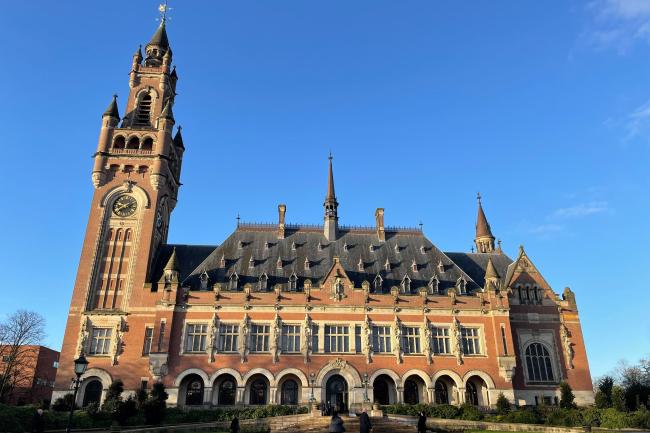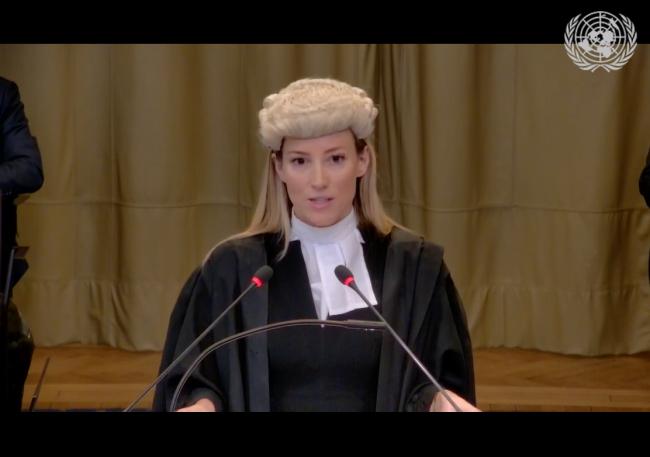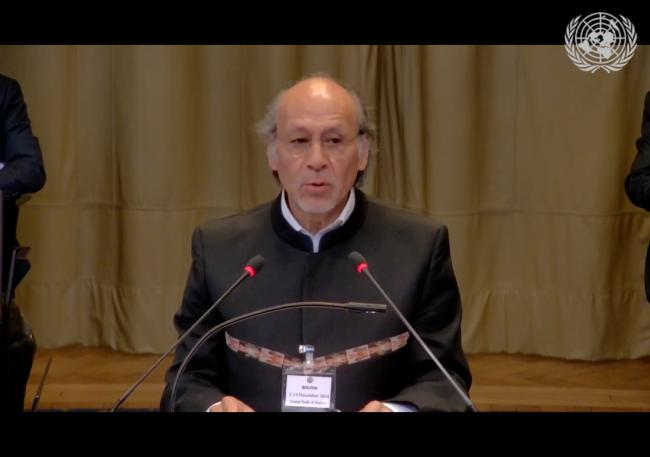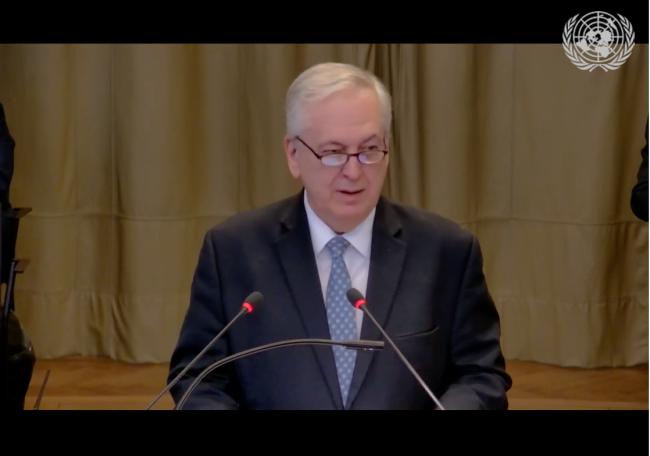As the sunshine entered the stained glass windows of the Great Hall at the Peace Palace, countries that spoke during the morning segment were in lock-step. They denounced the grossly insufficient mitigation of greenhouse gas (GHG) emissions to date and outlined their expectations for remedial action.
Belize advocated a layered perspective regarding attribution of States’ responsibility with respect to climate change. They underscored the indisputable chain of general causation between individual States’ GHG emissions and harm to the climate system as a whole. The Intergovernmental Panel on Climate Change (IPCC) has shown it time and time again: historic and continued, still rising emissions contribute to exacerbating climate change and its impacts. There is an urgent need to cease expanding fossil fuel use and to drastically rein in emissions. Belize also noted that specific causation is formulated in each particular context for the purposes of seeking reparation. Doing so relies on what is called “attribution science” and focuses on establishing a causal chain for specific harm.
Want to dig deeper into today's statements? Read the full Earth Negotiations Bulletin daily report.
Bolivia pleaded with the Court not to allow countries to evade obligations under international law on the grounds that causation and attribution science are complex. Various countries, including Belize and Brazil, noted that it is scientifically possible and feasible to quantify States’ national historical responsibility for global warming in order to address causation-related issues. The judges also heard various countries setting out their views on potential remedies for the harm suffered.
In line with the changing weather in The Hague, the afternoon took a different turn with a succession of statements revealing countries’ divergences on various issues. Canada started out by noting they do not consider that principles such as common but differentiated responsibilities, intergenerational equity, the precautionary principle, or the polluter-pays principle constitute customary international law and therefore these are not legally binding obligations. China highlighted it does not view GHG emissions as wrongful acts under international law or, against the advisory opinion of the International Tribunal for the Law of the Sea, as maritime pollution. The Republic of Korea pointed to the primacy of the Paris Agreement, underscoring its facilitative approach to addressing loss and damage.
To receive free coverage of global environmental events delivered to your inbox, subscribe to the ENB Update newsletter.






















